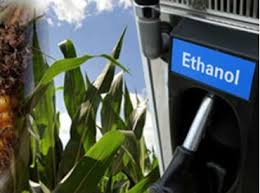
In the words of one report about the House Energy and Commerce Committee’s environment subcommittee hearing this week, it could “be a doozy.”
It will focus on Renewable Identification Numbers under the Renewable Fuel Standard. It’s been a controversial issue or at least it was when Scott Pruitt was Administrator of the Environmental Protection Agency.
During Pruitt’s leadership, the EPA granted 20 exemptions for the 2016 compliance year representing 790 billion RINs in blending which doubled the Obama administration’s exemptions.
The EPA granted 290 exemptions for the 2017 compliance year and is considering four more.
Oklahoma congressman Markwayne Mullin sits on the full committee but is not a member of the Subcommittee on the Environment.
The subcommittee didn’t announce the witnesses until Monday. They include Brent Yacobucci, an Energy and Minerals Manager of the Congressional Research Service; Sanda Dunphy, the Energy Compliance Director at Weaver and Tidwell, L.L.P.; Paul Niznik, a consultant with Argus Consulting Services; Gabriel Lade, Assistant Professor of Economics at Iowa State University; and Corey Lavinsky, director of Global Biofuels at S and P Global Platts Analytics.
The hearing will focus on ethanol blending requirements under the Renewable Fuel Standards in the Energy Policy Act of 2005.
If it sounds confusing,it is. But David Blackmon, a contributor to Forbes magazine explained it this way in an article in May.
“In a decision that received little notice in the news media, President Donald Trump authorized the EPA and Department of Agriculture to implement revisions to policies governing mandates for the blending of corn-based ethanol with gasoline and the associated system of credits (Renewable Identification Numbers, or “RINs”). As I discussed in a previous Forbes.com piece in January, the escalating cost of these RINs, which refiners are required to purchase when they are unable to obtain an adequate volume of ethanol to blend into their gasolines, had already contributed to the bankrupting of one Pennsylvania refinery and created a need to reform an irrational system.
One of the most irrational features of the existing system came when congress mandated the refining industry purchase more gallons of ethanol (now 15 billion per year) than needed to satisfy demand. The second big irrationality is that the system currently allows RINs to be counted on ethanol that refiners import from other countries, but not on volumes of U.S. ethanol that is exported.
Ethanol producers, meanwhile, have long opposed current EPA policy that bans the sale of E-15 (gasoline blended with 15% ethanol) during summer months on the grounds that the burning of high-ethanol content fuel contributes to smog on hot summer days. The Ethanol industry disputes the EPA’s position on the matter, and wants the policy changed in order to boost sales.
U.S. ethanol producers also oppose the EPA policy that allows RINs to be credited on imported volumes, since that can reduce demand for their product. The industry and politicians from corn-producing states like Iowa have also been upset in recent months as the EPA has issued an unusually large number of waivers that allow refiners to avoid the blending of ethanol in certain situations.”






